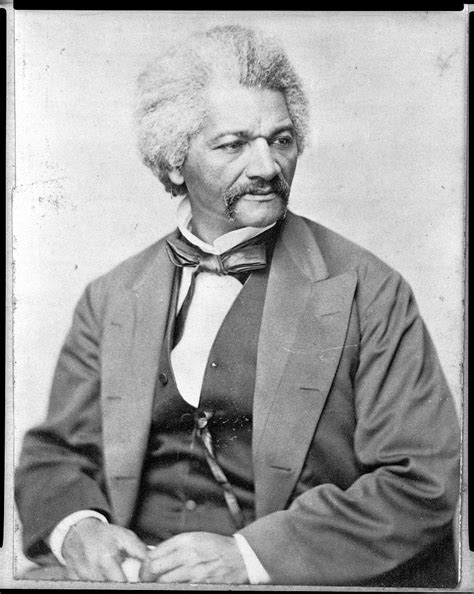Frederick Douglass, born Frederick Augustus Washington Bailey, was a renowned orator, abolitionist, writer, and statesman who played a pivotal role in the fight against slavery and for the advancement of civil rights in the United States.

Early Life and Escape from Bondage
Born into slavery in Maryland in 1818, Douglass endured the brutality and oppression of the institution firsthand. In 1845, he escaped to freedom by disguising himself as a sailor and boarding a train to the North.
Activism and Advocacy
Upon gaining his freedom, Douglass dedicated his life to the abolitionist cause. He became a prominent public speaker, delivering powerful speeches that condemned slavery and challenged the racist views of his time. In 1847, he published his acclaimed autobiography, “Narrative of the Life of Frederick Douglass, an American Slave,” which became a bestseller and ignited public outrage against the horrors of slavery.
“The man who has never known what it is to be a slave never can fully appreciate what it is to be free.”
Commitment to Suffrage and Civil Rights
Douglass’s activism extended beyond the abolition of slavery. He advocated for women’s suffrage and worked tirelessly to ensure that African Americans had access to education, employment, and political participation. He founded the North Star, a newspaper that promoted abolitionism and civil rights, and helped establish the American Anti-Slavery Society.
“If there is no struggle, there is no progress. Those who profess to favor freedom, and yet deprecate agitation, are men who want crops without plowing up the ground; they want rain without thunder and lightning.”
Political Career
Douglass’s influence and reputation extended to the political sphere. He met with President Lincoln and advised him on policies related to slavery and civil rights. He also served as a diplomatic envoy to Haiti and as a United States Marshal for the District of Columbia.
“It is easier to build strong children than to repair broken men.”
Legacy and Impact
Frederick Douglass’s legacy as a fearless advocate for freedom and equality continues to inspire generations. His writings and speeches have been translated into numerous languages and are still studied today. His life and work have left an indelible mark on American history and helped shape the nation’s fight for social justice and equality.
Frederick Douglass: A Timeline of Key Events
| Year | Event |
|---|---|
| 1818 | Born into slavery in Maryland |
| 1845 | Escapes to freedom |
| 1847 | Publishes “Narrative of the Life of Frederick Douglass, an American Slave” |
| 1851 | Becomes president of the North Star newspaper |
| 1863 | Meets with President Lincoln to advocate for abolition |
| 1865 | Slavery abolished in the United States |
| 1889 | Elected as a presidential elector for the Republican Party |
| 1895 | Dies in Washington, D.C. |
Tips and Tricks for Studying Frederick Douglass
- Read his autobiography, “Narrative of the Life of Frederick Douglass, an American Slave,” to gain a firsthand account of his experiences and perspectives.
- Explore his speeches and writings to understand his powerful rhetoric and advocacy for abolition and civil rights.
- Visit the Frederick Douglass National Historic Site in Washington, D.C., to see his home and learn about his life and work.
- Engage in discussions and research on Douglass’s legacy and the impact of his activism on American society.
FAQs on Frederick Douglass
- When was Frederick Douglass born?
- What was the name of Frederick Douglass’s newspaper?
- What role did Douglass play in the abolitionist movement?
- What was Douglass’s position on women’s suffrage?
- What political positions did Douglass hold?
- Where is the Frederick Douglass National Historic Site located?
